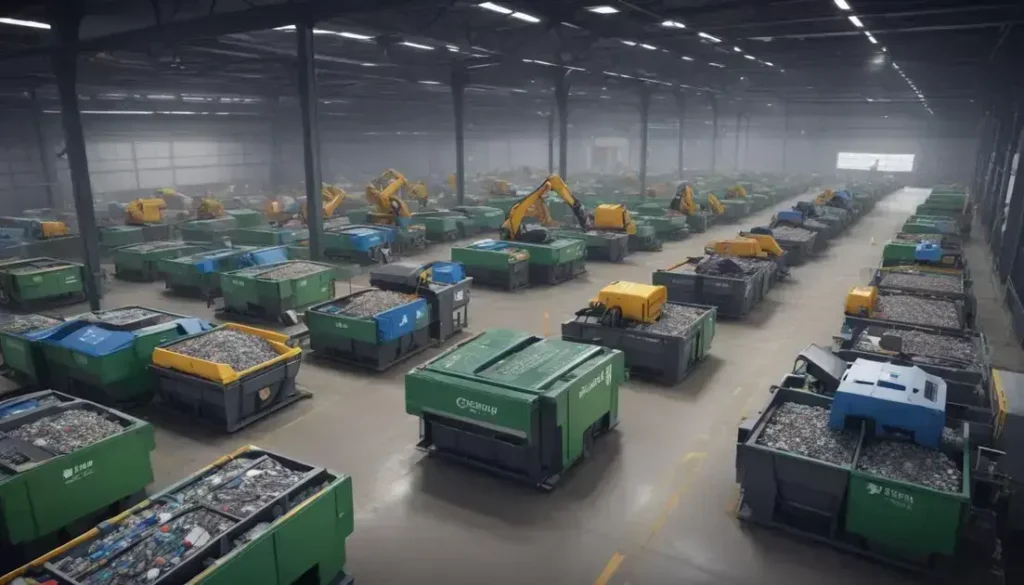Carbon credits allow UK farmers to generate revenue by adopting sustainable practices that reduce greenhouse gas emissions, thus contributing significantly to sustainability initiatives and corporate responsibility in tackling climate change.
Did you know that carbon credits play a pivotal role in addressing climate change? This recent deal between Microsoft and Agoro Carbon highlights their importance for businesses in the UK.
Understanding the significance of carbon credits for agriculture
Carbon credits are crucial in promoting sustainable agricultural practices. By providing a financial incentive for farmers to enhance their environmental stewardship, these credits encourage the adoption of methods that reduce greenhouse gas emissions. Farmers can earn carbon credits by implementing practices such as cover cropping, no-till farming, and agroforestry.
The Economic Impact: In the context of agriculture, carbon credits can create new revenue streams. Farmers who engage in carbon sequestration methods not only contribute to climate change mitigation but also benefit economically. They can sell their credits to corporations aiming to offset their emissions, thus integrating agriculture into the carbon market.
Moreover, the movement towards carbon neutrality is pressing, urging agricultural sectors to innovate and shift towards more sustainable practices. The global demand for sustainable products is shifting the market dynamics, compelling farmers to adapt. As public awareness around climate issues grows, consumers increasingly support businesses that prioritise environmental responsibility.
Understanding the significance of carbon credits in agriculture is vital for farmers seeking to remain competitive in a rapidly evolving market. By leveraging these credits, they can enhance profitability while simultaneously addressing the pressing challenges of climate change.
How Microsoft’s agreement influences UK sustainability initiatives
Microsoft’s recent agreement serves as a catalyst for advancing sustainability initiatives in the UK. This partnership emphasises the role of technology in transforming environmental practices across various sectors. By leveraging Microsoft’s innovative tools, businesses can efficiently track and reduce their carbon footprints.
The Role of Technology: One significant aspect of this agreement is the integration of advanced data analytics. UK companies can utilise Microsoft’s platforms to measure their environmental impact and identify areas for improvement. This capability aligns with the UK’s ambitious climate goals, empowering firms to adopt sustainable practices.
Additionally, the agreement reinforces the importance of corporate responsibility in addressing climate change. By aligning their operations with Microsoft’s sustainability standards, UK firms can enhance their credibility and appeal to environmentally-conscious consumers. This shift towards sustainability not only helps in compliance with regulations but also opens up new market opportunities.
The collaboration signals a progressive step for the UK’s technological landscape, demonstrating how partnerships can drive impactful change. As businesses adopt these innovative approaches, they contribute to a larger narrative focused on building a sustainable future. Microsoft’s commitment to environmental accountability sets an inspiring example for the entire sector.
In Conclusion: Embracing Sustainability in the UK
Microsoft’s agreement highlights the vital role technology plays in promoting sustainability initiatives within the UK. By providing advanced tools and resources, this partnership empowers UK businesses to reduce their environmental impact effectively.
As firms integrate technology into their operations, they not only meet regulatory standards but also appeal to a growing market of eco-conscious consumers. With the support of innovative companies like Microsoft, the future of sustainability in the UK looks promising.
Ultimately, embracing these changes is essential for any business aiming to thrive in today’s environmentally aware economy. Every small step towards sustainability makes a significant difference.
People Also Ask
How do carbon credits work for farmers?
Carbon credits allow farmers to earn revenue by implementing sustainable practices that reduce greenhouse gas emissions. They can sell these credits to companies looking to offset their carbon footprint.
What impact does Microsoft’s agreement have on UK businesses?
Microsoft’s agreement encourages UK businesses to adopt sustainable practices by providing them with the tools and resources needed to track and reduce their environmental impact.
Why are sustainability initiatives important for companies?
Sustainability initiatives enhance a company’s reputation, attract eco-conscious consumers, and ensure compliance with environmental regulations, contributing to long-term success.
How can technology help in measuring carbon footprints?
Technology tools, like those provided by Microsoft, enable companies to collect data on their emissions and identify effective strategies for reduction, making sustainability more manageable.
What are the benefits of integrating technology into sustainability efforts?
Integrating technology helps streamline processes, improve data accuracy, and facilitate the monitoring of sustainability metrics, thus enhancing overall effectiveness in achieving environmental goals.
Can small businesses also benefit from sustainability practices?
Absolutely! Small businesses can enhance their competitiveness and appeal to consumers by adopting sustainable practices, often leading to cost savings and improved operational efficiency.


